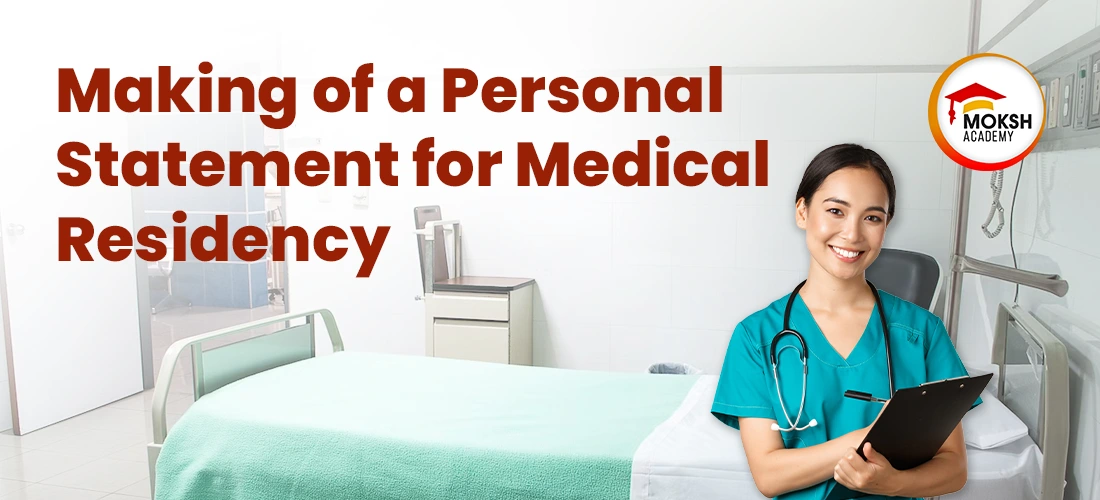
Introduction to the Medical Residency Application Process
The journey to becoming a medical professional is filled with numerous milestones, and one of the most critical is securing a medical residency. As a medical student, the application process for residency can seem overwhelming, but with the right guidance, you can navigate it successfully. This comprehensive guide aims to provide you with valuable insights into crafting an effective personal statement for your medical residency application, ensuring that you stand out from the competition.
The importance of a personal statement for medical residency
Your personal statement is your chance to showcase the unique qualities, experiences, and motivations that make you an exceptional candidate for a medical residency. It serves as a powerful tool for the selection committee to understand your passion for medicine and your potential as a future healthcare professional. A strong and unique personal statement can make a lasting impression and significantly impact your chances of securing a residency position.
Understanding the NRMP Match and the ERAS application
To fully comprehend the residency application process, it is essential to familiarize yourself with the National Resident Matching Program (NRMP) Match and the Electronic Residency Application Service (ERAS). The National Resident Matching Program NRMP Match is a computerized algorithm that pairs applicants with residency programs based on their preferences and program directors' preferences. On the other hand, ERAS is a centralized application system that allows you to apply to multiple residency programs using a single application, including your personal statement, letters of recommendation, and CV.
Key components of a strong personal statement for medical residency
Crafting an impactful personal statement requires careful consideration of its key components. Firstly, it is crucial to introduce yourself and provide a glimpse into your background, such as your medical education, research experience, and clinical exposure. Next, highlight your motivations for pursuing a specific medical speciality and the qualities that make you a strong fit for that field. Additionally, sharing personal stories and experiences that have shaped your passion for medicine can help create a unique narrative that captivates the reader.
How to structure your personal statement
Structuring your personal statement in a logical and cohesive manner is essential for maintaining the reader's interest. Begin with a compelling introduction that immediately grabs the reader's attention and sets the tone for the rest of your statement. Next, delve into your experiences, skills, and achievements that demonstrate your commitment to medicine and your chosen specialty. Additionally, dedicate a section to discussing any challenges you have overcome and the valuable lessons you have learned from them. Finally, conclude your personal statement by summarizing your key points and reiterating your strong motivation for pursuing a medical residency.
Showcasing your unique qualities and experiences
In a competitive residency application process, it is crucial to emphasize what sets you apart from other candidates. Highlight your unique qualities, such as leadership skills, research experience, or community involvement, that demonstrate your potential for making a positive impact in your chosen medical speciality. Additionally, share any international experiences, cultural competencies, or language skills that could contribute to your ability to provide compassionate and comprehensive patient care. This is how you can create a unique personal statement.
Tips for writing a compelling and impactful personal statement
Writing a personal statement that leaves a lasting impression requires careful planning and attention to detail. Start by brainstorming and outlining your ideas to ensure a cohesive narrative. Be concise and avoid unnecessary jargon or technical language. Use vivid and descriptive language to engage the reader and create a memorable experience. Additionally, seek feedback from mentors, professors, or trusted colleagues to ensure your personal statement effectively conveys your passion and potential.
Crafting a CV for a medical student applying for a residency
In addition to your personal statement, your Curriculum Vitae (CV) plays a vital role in your residency application. It is very crucial to have a good CV for medical students. Your CV should provide a comprehensive overview of your academic achievements, research experience, clinical rotations, and extracurricular activities. Organize your CV clearly and concisely, highlighting relevant experiences and skills that align with your chosen medical specialty. Remember to update your CV regularly and tailor it to each residency program you apply to, emphasizing aspects that align with their specific requirements and values.
Letters of recommendation and their role in the application process
Letters of recommendation hold significant weight in the residency application process as they provide insights into your professional abilities, character, and interpersonal skills. Choose letter-writers who know you well and can speak to your strengths and potential as a future resident. Maintain strong relationships with your mentors and supervisors throughout your medical education to ensure you have reliable individuals who can provide powerful letters of recommendation.
Navigating the ECFMG pathway application for international medical graduates
For international medical graduates, the Educational Commission for Foreign Medical Graduates (ECFMG) pathway is a crucial step in the residency application process. Familiarize yourself with the ECFMG requirements, including the certification process and examinations, such as the United States Medical Licensing Examination (USMLE). Comply with all necessary documentation and deadlines to ensure a smooth application process and maximize your chances of securing a residency position.
USMLE residency requirements and their influence on your application
The USMLE residency requirements vary depending on your medical school and the residency program you are applying to. Research and understand the specific requirements, including the minimum score thresholds, clinical experience prerequisites, and any additional qualifications necessary for your desired residency program. Prepare diligently for the USMLE exams, as strong scores can significantly enhance your residency application.
The residency match process and how to optimize your chances
The residency match process can be both exciting and nerve-wracking. To optimize your chances of securing a residency position, consider the following strategies. Firstly, research and apply to a diverse range of programs that align with your interests and goals. Be strategic in selecting programs where your qualifications and experiences make you a competitive candidate. Additionally, network with residents, program directors, and faculty members during interviews and informational sessions to demonstrate your genuine interest and commitment. It is important to keep in mind that there are some medical residency requirements and one should fulfill them all to get matched.
Common mistakes to avoid in your statement and application
While crafting your personal statement and assembling your application, be mindful of common mistakes that can hinder your chances of success. Avoid generic statements or clichés that fail to showcase your unique qualities. Proofread your personal statement and application materials meticulously to eliminate any grammatical or spelling errors. Fulfill the requirements of the ERAS supplemental application. Finally, ensure that your statement remains focused on your motivations and experiences, without veering into unrelated or irrelevant topics. The medical residency personal statement plays a vital role in the matching process.
Conclusion: Putting it all together and submitting a stellar application
Crafting an effective personal statement and assembling a strong residency application requires time, effort, and attention to detail. By following this comprehensive guide, you are equipped with the knowledge and strategies to showcase your unique qualities and experiences effectively. Remember to stay true to yourself, be authentic in your statement, and present a clear and compelling narrative that demonstrates your passion and potential as a future medical resident. With careful preparation and a stellar application, you are well on your way to securing a medical residency that aligns with your career aspirations by MOKSH Academy.



